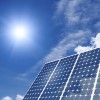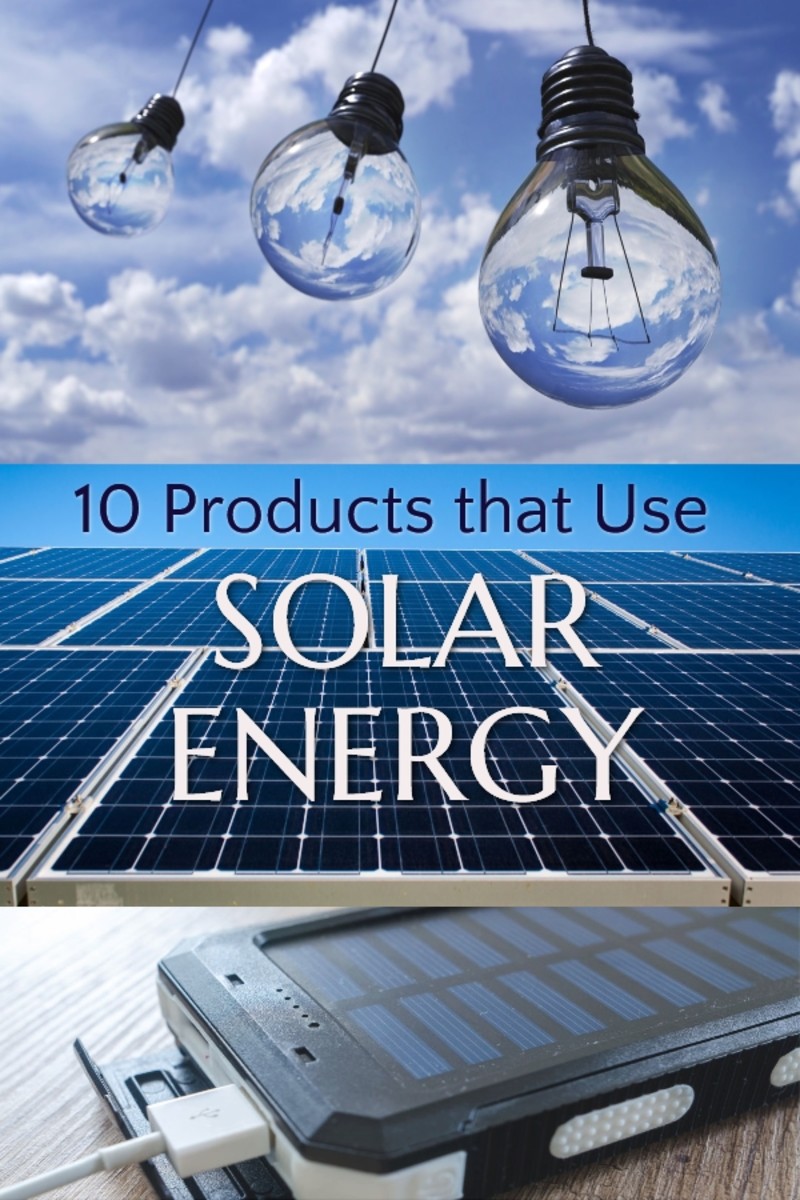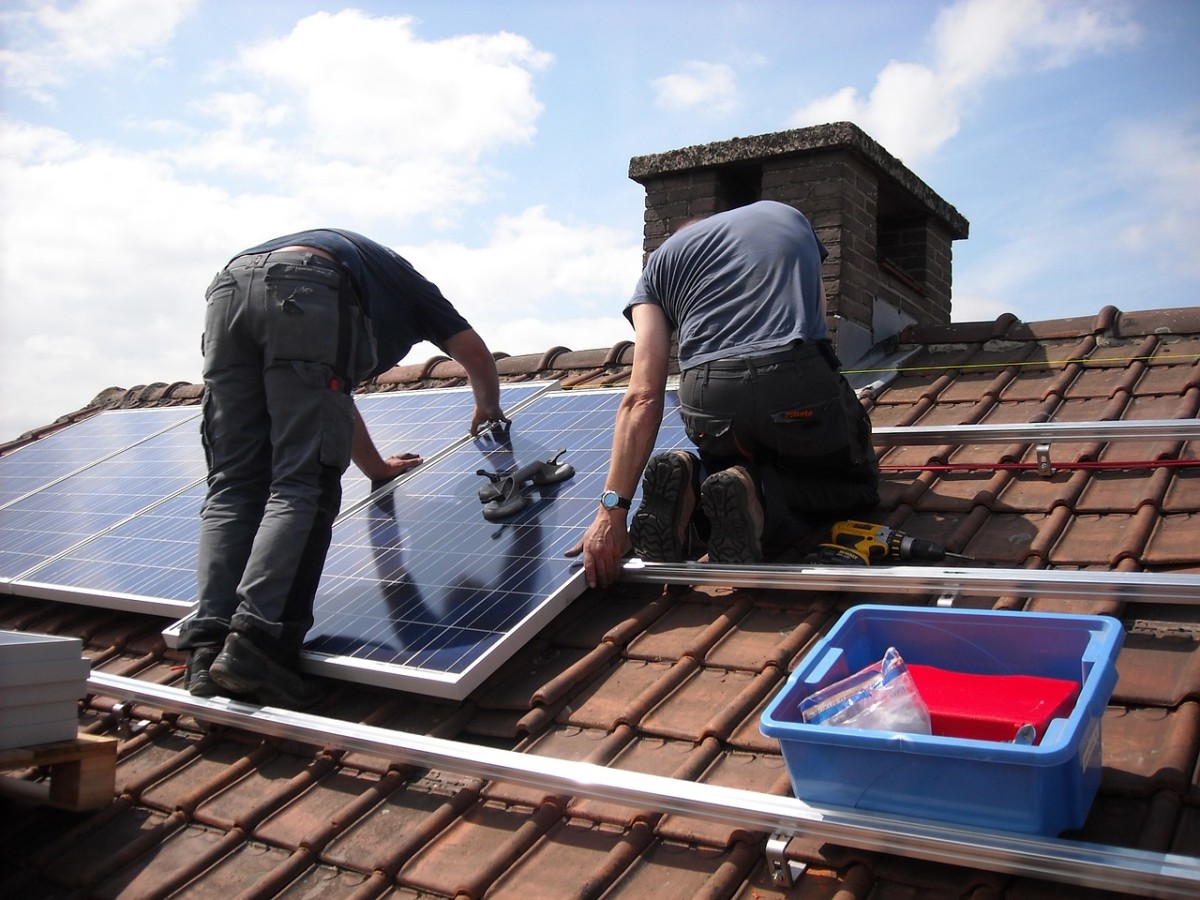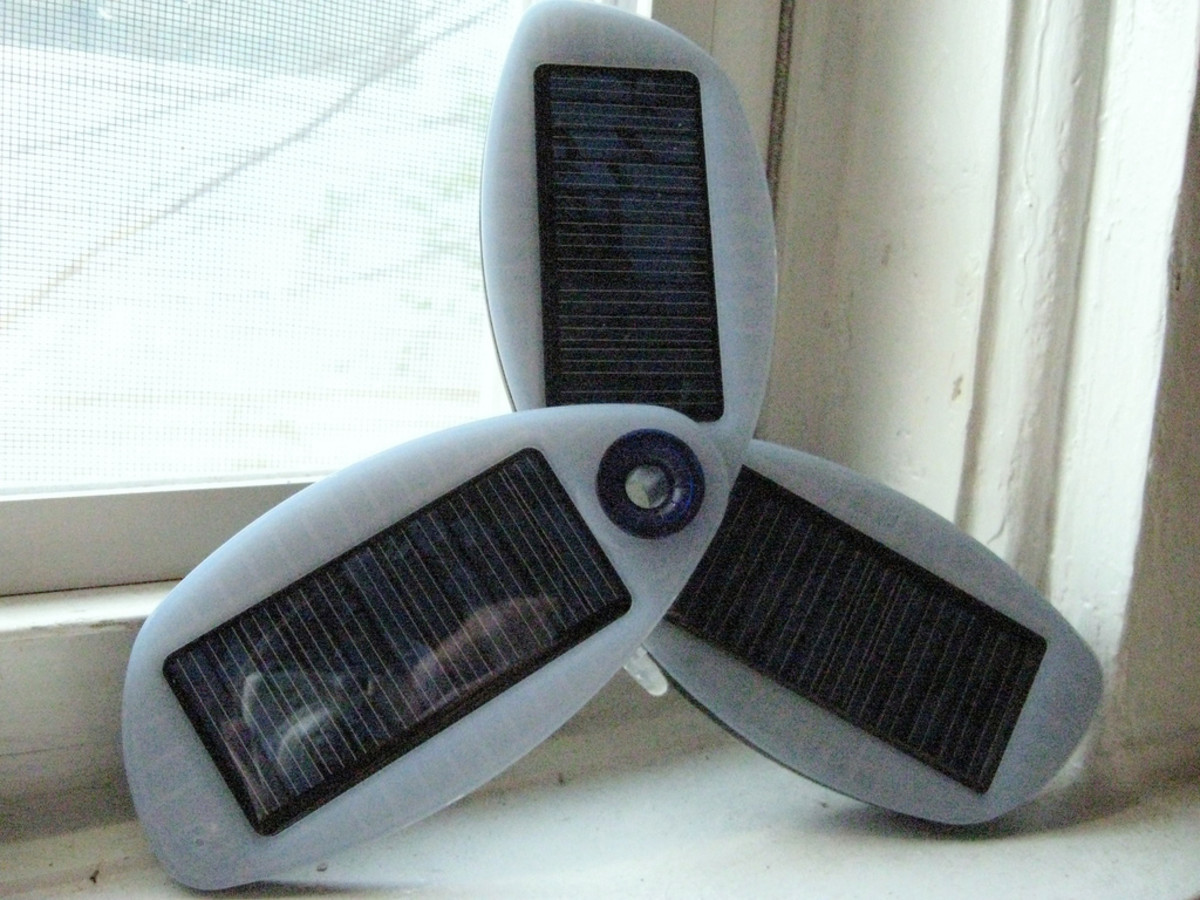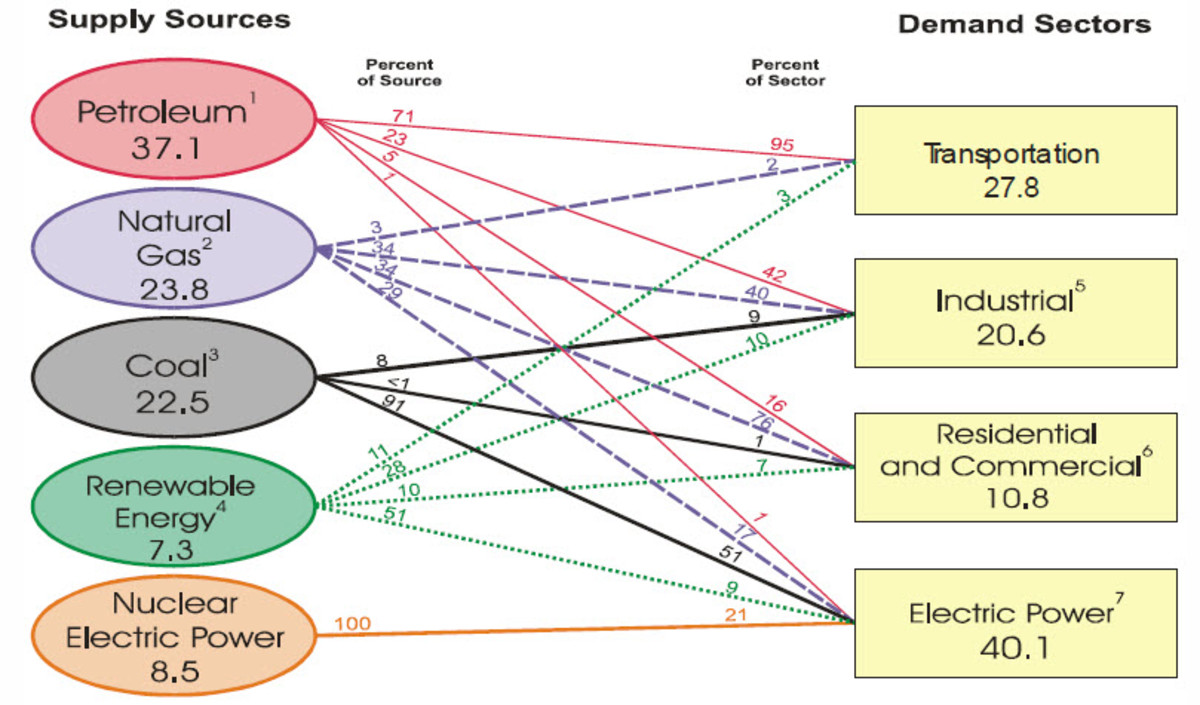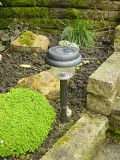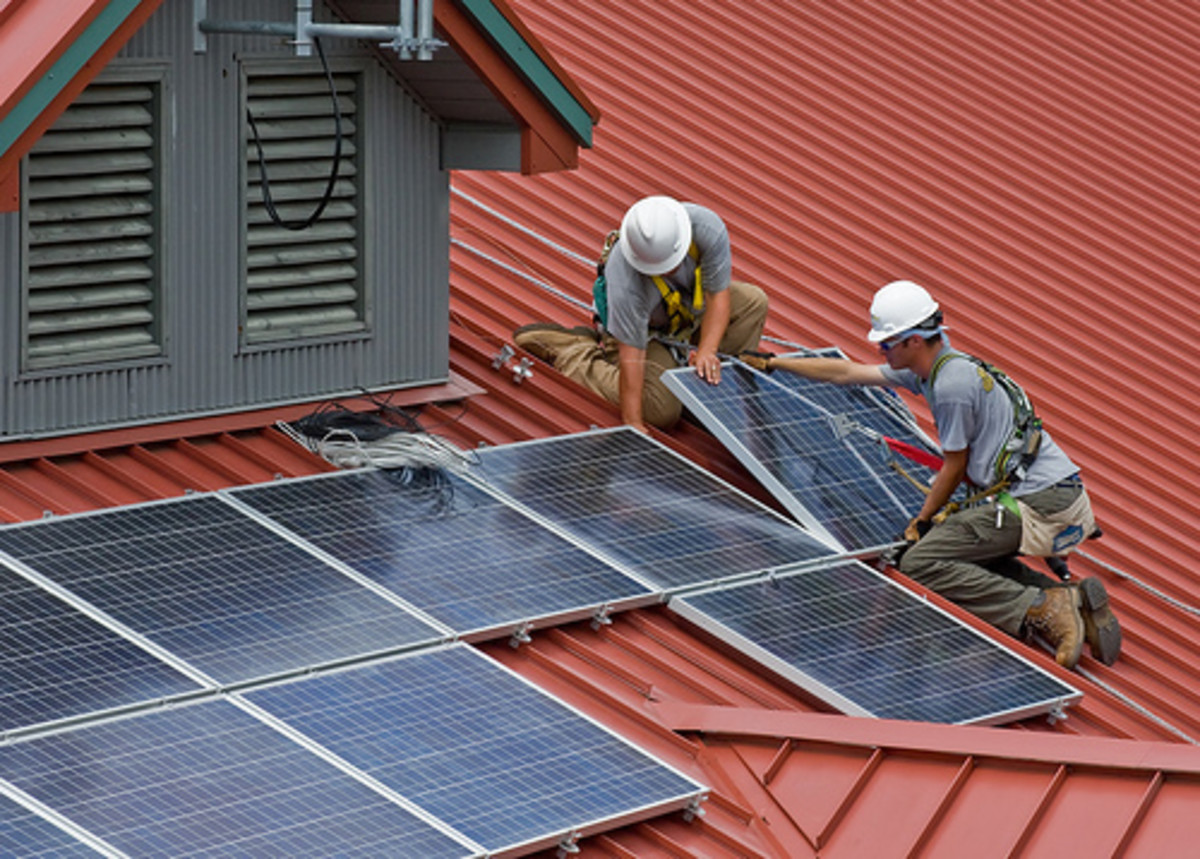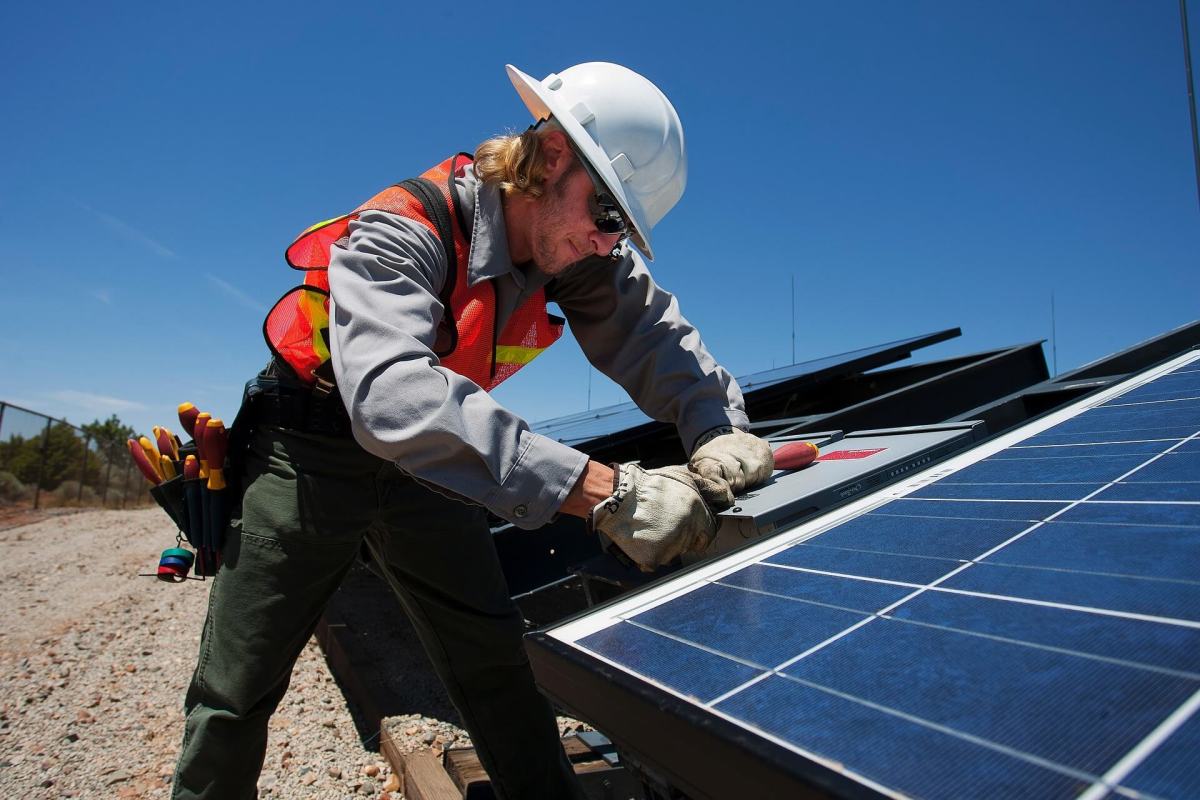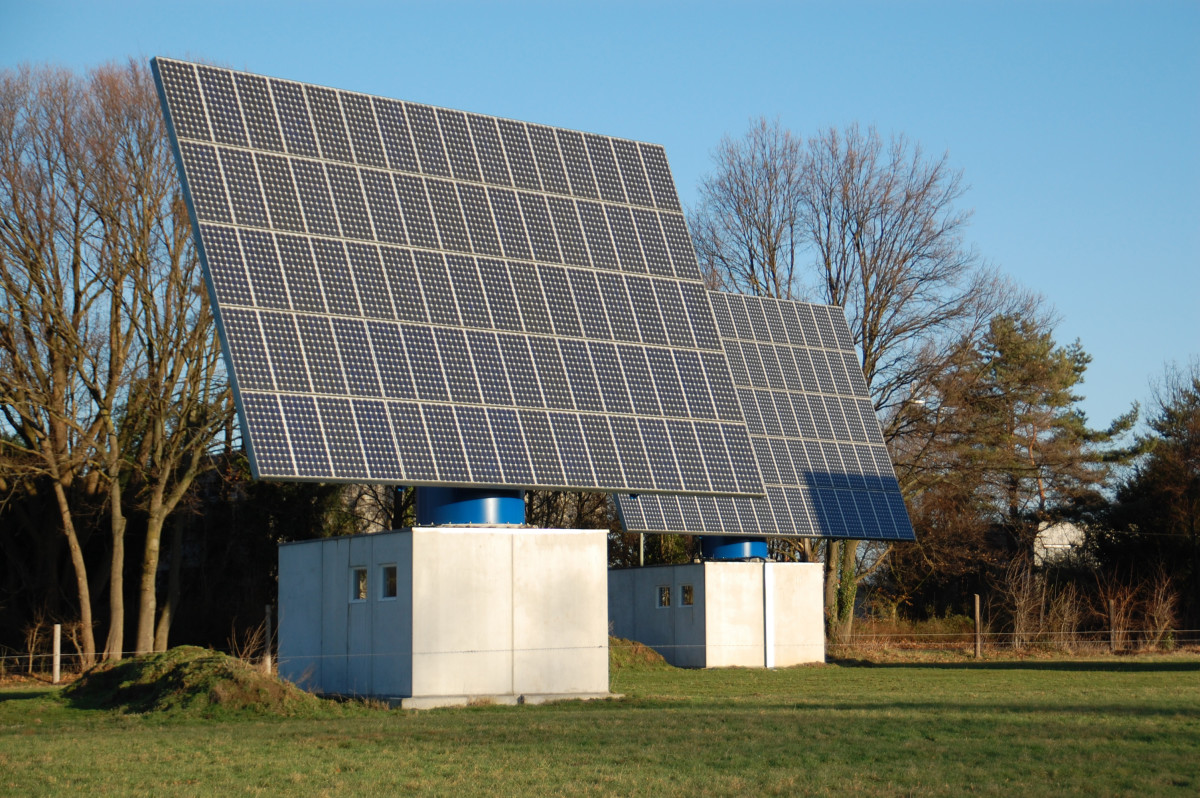The Rising Appeal of Solar Energy
Why Renewable Energy?
Large-scale change tends to be exponential, happening suddenly, and over a very short period of time. To quote a segment from Charlie Gay, Director of the U.S. Department of Energy, in Easter of 1900, a picture was taken in New York City, featuring dozens of horse-drawn carriages, with a single car in the middle. That same street was photographed in Easter of 1913, this time the road completely full of cars, with only one horse-drawn carriage. This 13-year shift perfectly encapsulates what I believe is happening in the renewable energy industry currently, particularly in the world of solar power. If an entire populace can begin using automotives in a span of 13 years, renewable energy will be no different. The change has already begun with renewable energy, and dozens of thousands of people across the U.S. every year are committing to a more green method of consumption. As this change is exponential, it won't be long before you see fossil fuels fade out of use. During this shift, many experts believe solar is the resource to go for, but why is that?
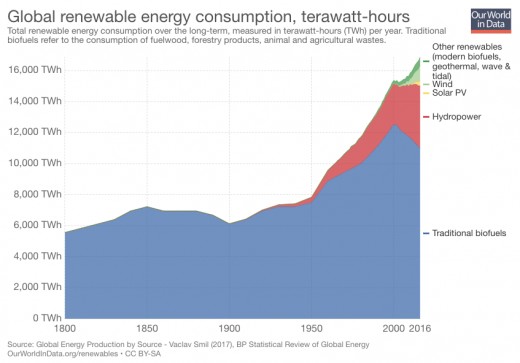
Solar vs Wind
As you can see by the above graph, wind energy is receiving more use globally than solar energy. This is true in the U.S., as well. What you can't tell from a graph, however, is the cause. Most wind turbines are built by large businesses, corporations, organizations, and governments, utilizing available land for power. Wind turbines require a set of specific conditions to be built; high elevation, a consistently windy environment, and open space. In these kinds of areas, wind energy thrives, but even then, due to all of the moving parts, they require semi-constant maintenance. They produce a lot of power, but take up quite a bit of space and are overall an inefficient or impossible option, depending on the consumer.
Solar energy, on the other hand, is much more accessible for the average person or business. A residential system commonly only takes up the space on a home's roof, and most businesses can do the same. This allows for a setup that is almost unnoticeable from ground level, and doesn't require any extra space beyond what you already have available. As well as being space-efficient, solar panels also lack moving parts, meaning they don't need anywhere near as much maintenance as other renewable energy alternatives. Combined with the fact that you can scale how many solar panels you need to reach your exact usage without overspending, and you can probably see why solar energy is the number one choice for most people. Residential and commercial properties alike, consumers are coming to realize that the pros of solar far outweigh those of any other situational renewable energy. After all, in areas where there may not be much wind, or accessible flowing water, there will always be reliable hours of sun. How, then, do we get over the hurdle of only producing power during the day?
Storage & Batteries
Let's say your home or business uses 20,000 Kilowatt hours of energy per year, or approximately 55 per day. To provide enough power to completely take care of your needs, you would purchase a 20,000 kWh solar system. This system would begin producing at the first sign of sunlight in the morning, and stop producing once sunlight stops hitting the panels in the evening. Naturally, however, most residential properties aren't using their entire daily energy intake during daylight hours, and continue to power their homes at night. This is where battery storage comes in. The solar system works to produce more energy than you need during the day, storing all excess energy away in a battery for use later that night. With a battery, you can ensure that you'll be living just the same as you always have, including at night, even though all of your energy is coming from the sun. Including a battery with your solar system can also help you take the steps needed to disconnect yourself from your power company, relying entirely on your own solar production and living self-sufficiently.
In Conclusion
Regardless of which method of renewable energy you choose to pursue, I and many experts believe that green power production sources such as solar, wind, hydropower, and geothermal energy are the future. By being proactive and choosing to look into these energy sources early, you're preparing yourself and your family- or your business- for changing times ahead, and also ensuring that you will always have your own way to provide energy to your home during situations where loss of power is an issue. I believe solar energy will be the popular and efficient choice for most people in the near future, however I would urge you to research and ensure you are knowledgeable enough to make your own educated decision about which method of production is best for you.
